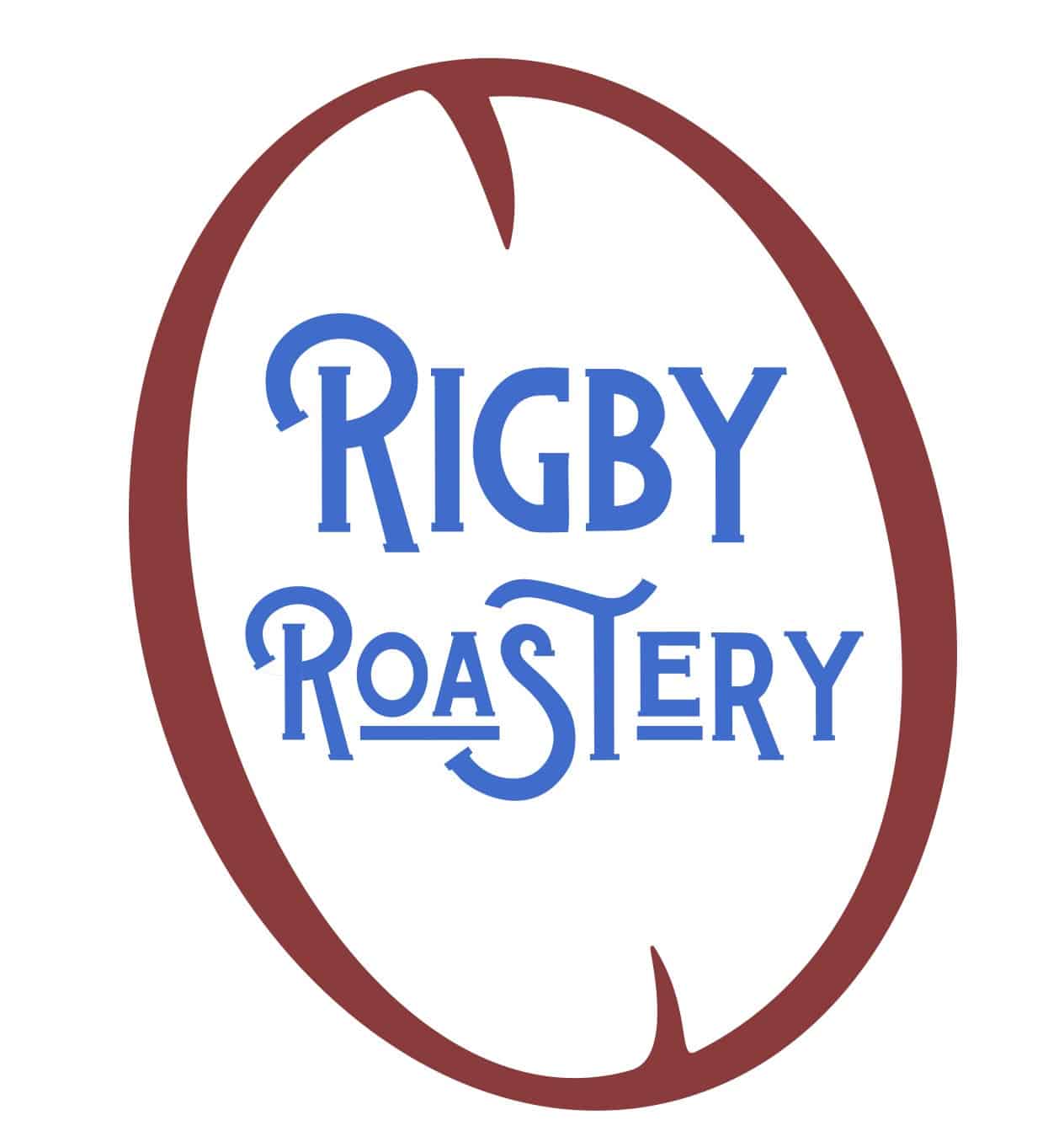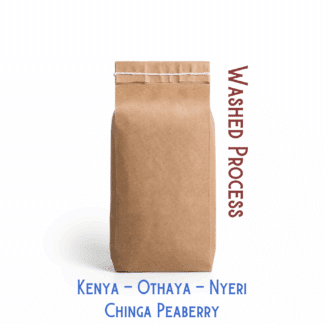Kenyan Coffee Othaya Peaberry
Price range: $23.00 through $129.00
This coffee is juicy, bright, and sweet. A wonderful example of Kenyan Coffee. We taste Stone Fruit, Baking Spices, Lemon, and Lime.
Kenyan coffee. Kenya coffee. Kenya AA coffee. Coffee from Kenya.
Kenyan Coffee
Kenyan coffee production is known for some of the most meticulous at-scale processing that can be found anywhere.
Firstly, bright white parchment, nearly perfectly sorted by density and bulk conditioned at high elevations is commonplace. Secondly, Kenyan processing is a matter of pride even for managers who prefer drinking Kenya’s tea to its coffee. Thirdly, ample water supply is available in the central growing regions.
This has historically allowed factories to wash, and soak, and wash their coffees again entirely with fresh, cold river water.
However, that being said, conservation is becoming key in certain places. Above all, this is happening in the drier areas where water, due to climate change, cannot be as taken for granted. But elsewhere too. For the most part Kenya continues to thoroughly wash and soak its coffees according to tradition.
Subsequently, the established milling and sorting by grade, or bean size, is a longstanding tradition and positions them well for roasters, by tightly controlling the physical preparation and creating a diversity of profiles from a single processing batch.
How does it taste?
To sum up the cup, this Kenya coffee has a flavor profile that is citrusy, bright, & and clean. All this while also possessing a strong sweetness and complexity.
This peaberry has such a ripe, fruited, & sweet aroma in the grinds. We taste plumcot and peaches, accented by mulling spices and tropical tartness. Aspects of raw sugars are a bit more potent in the wet aroma, and culminate a steam infused with cinnamon-spiced sugar, demerara, and a red raisin note.
The cup is versatile being both fruit-forward and grabby accompanied by the spiced sugar sweetness. It is yielding some really interesting flavor profiles across multiple brew methods. The sweetness has unrefined sugar sparkles with a sprinkling of cinnamon and clove that make a positive impact on the brewed coffee once its cooled down.
It is pretty well-integrated with the flavors we expect from a Kenyan coffee.
Chinga and the Othaya Farmers Cooperative Society
Chinga is one of several coffees we have featured from Othaya Farmer’s Cooperative Society (FCS). This is an FCS that includes an impressive amount of wet mills, 18 in all, dating back to the late 1950s. Chinga Factory was the second mill to be developed under Othaya umbrella in 1960.
“Factories” are essentially small washing stations aligned with a particular “society” in Kenya, what we would call a “cooperative”. We return to the societies who seem to regularly produce some of the best Kenya coffees, and each year we come across societies that are new to us as well.
Being one of the older Kenya FCS, we were well aware of the quality coming out of Othaya, and have had the good fortune to buy a few stellar lots the past few years.
Washed Processing
This is a “peaberry” outturn, which occur when one of the two embryos that typically grow inside a coffee cherry fails to germinate. This leaves only one seed to develop and grow into a small, rounded coffee bean. Peaberries can taste a little different than their flat bean counterparts, though not always the case.
Washed coffee is distinguished by the clarity of the flavors and attributes that it can achieve. During this process, the sugars present in the mucilage are removed through natural fermentation or mechanical scrubbing.
Fermentation can be done by stacking the coffee outside or placing them under water. Doing so allows nature to take its course. After the sugars are removed, the beans then can be taken through a secondary washing to remove any additional debris. Sometimes they are taken immediately to the patios or beds for drying.
During wet processing…
- Firstly, the pulp is removed mechanically.
- Secondly, the remaining mesocarp, called mucilage, sticks to the parchment and is also removed before drying.
- Because mucilage is insoluble in water and clings to parchment too strongly to be removed by simple washing. The coffee must go through some fermentation.
- Finally, the coffee can be dried.
The method and supervision of fermentation can make or break a coffee’s final outcome. These coffee cherries were hand sorted by the farmers before they went into production. After their skins were removed the coffee was put into fermentation tanks. Here it was stored at least overnight, then washed, soaked and spread on drying tables.
Once on the tables frequent turning is required until the coffee reaches the desired moisture level of 11-12%. Lastly the coffee, in its parchment parchment gets stored to rest until delivery to the dry mill.




